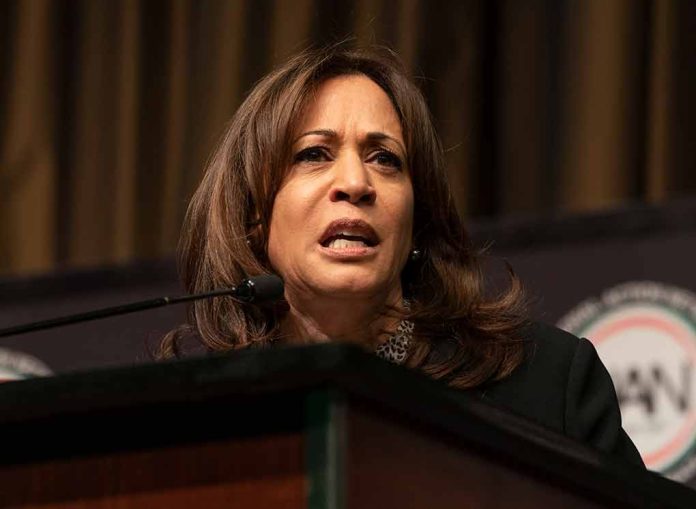
In a recent NBC interview, Vice President Kamala Harris addressed the contentious issue of transgender healthcare, but her responses left much to be desired and have sparked serious concern among conservative Americans.
At a Glance
- Harris avoided definitive answers regarding support for gender-affirming care.
- She emphasized a vague respect for medical input and existing laws, lacking any commitment to action.
- Comparisons were made between her campaign strategies and those of Donald Trump.
- She stressed dignity and respect for all individuals, regardless of identity, but the question of what that means in practical terms remains unanswered.
Harris’s Position on Transgender Healthcare
When pressed about her support for gender-affirming healthcare during the NBC interview, Harris sidestepped specific commitments, choosing instead to reference healthcare professionals and legal frameworks. This lack of clarity appears to be a deliberate attempt to navigate a politically sensitive landscape without alienating voters.
“All people should be treated with dignity and respect, period, and should not be vilified for who they are, and should not be bullied for who they are,” Harris stated. Such platitudes do little to address the complex realities on the ground.
Harris’s response reflects her cautious navigation of the political landscape, where transgender rights remain contentious. Despite earlier endorsements of comprehensive care, she now refrains from making definitive commitments.
Harris’s Political Strategies
The Vice President’s policies raise concerns about neglecting the needs of middle-class and working Americans. Her focus on progressive identity politics seems to favor wealthier, urban elites, while sidelining the real struggles of hardworking families and rural communities. The potential rollback of critical healthcare protections, like the Affordable Care Act’s Rule 1557, risks leaving many vulnerable to government overreach, all while ignoring the priorities of everyday Americans.
Additionally, the ongoing L.W. v. Skrmetti case—challenging the legality of barring minors from receiving gender-affirming care—highlights the urgent need for clarity. As the court prepares to hear arguments, one must wonder if Harris has any intention of taking a firm position on such significant matters.
Comparisons with Trump
Interestingly, the interview also drew comparisons between Harris’s approach and that of Donald Trump. While Trump advocates for limitations, Harris’s ambiguous support for healthcare access and LGBTQ+ rights does little to inspire confidence. It seems her strategy involves evading deep engagement with transgender issues to maintain broader voter appeal. Is this really leadership, or just another form of political maneuvering?
When she stated, “I’m not going to put myself in a position of a doctor,” she not only avoided accountability but also demonstrated a lack of genuine commitment to finding solutions for those in need of healthcare. This hesitance to engage deeply with pressing issues while echoing the administration’s broader rhetoric only amplifies concerns about her effectiveness.








